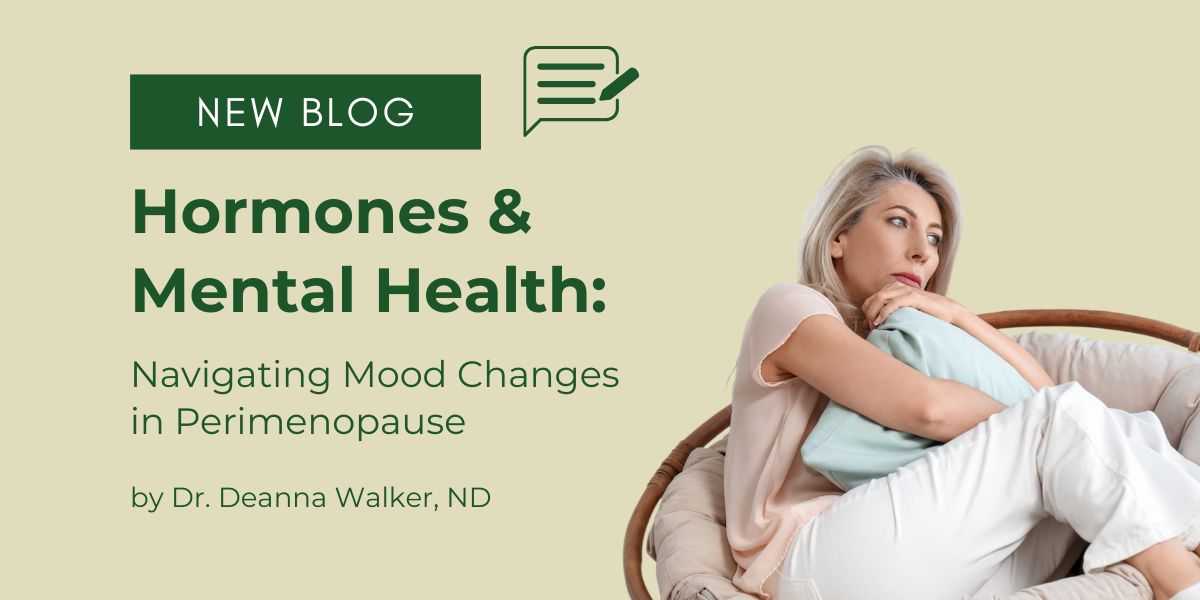
The most common thing I hear my perimenopausal patients say is “I just don’t feel myself”. Many women experience mood changes in perimenopause. This can be experienced as more anxiety, irritability or rage, but a woman’s mood can also swing in the other direction with more lethargy and depression.
The average onset of perimenopause for women is at 45 years of age and can last up to 10 years.
Menopause is the anniversary of no menstrual cycles for 1 year.
Post-menopause is everything after this.
Perimenopause tends to be the most symptomatic and troublesome for women. During the early stages of perimenopause, women start having irregular menstrual cycles that vary in length from one cycle to the next and late perimenopause women often have their periods less often with cycles usually lasting over 60 days.
During both early and late perimenopause reproductive hormones (estradiol and progesterone) are changing and fluctuating.
Estrogen receptors are present in every tissue of a woman’s body including their brain and thus drastic changes in estradiol levels can impact mood.
There is some evidence that hormone therapy (particularly estradiol) has antidepressant effects of similar magnitude to antidepressant medications when used in perimenopausal women. This benefit is not seen when given to postmenopausal women.
Although hormone therapy has shown this benefit, it is not (yet) government approved for this indication. But, if you have other indicated symptoms for hormone therapy (ie. hot flashes) you may notice the pleasant side effect of an improved mood.
Beyond your crazy hormones, there are things you can do in your lifestyle that will make a difference in improving your mood.
The main thing surrounds improving and prioritizing your self-care.
The time and effort you are putting toward your nutrition, physical activity and the type of boundaries you have in place are impacting your mental health more than they have in the past. Here are some easy strategies to get you started:
- Nutrition: start FUELING your body and brain with regular meals. Prioritize and make time for your meals. Stop skipping your meals. Minimize processed, fast, fried or sugar filled foods. Most of us know what foods are not healthy for us. If you need help there are many resources and professionals that can help you.
- Movement: start MOVING your body more. Commit to a regular walking routine in your week. Start with 30 min walks 3x/week and build up to 150 active minutes/week. Other ideas to consider are a walking pad at your desk or little changes in your routine like taking the stairs instead of the elevator. These small changes make a difference.
- Boundaries: it is a good time to ask yourself what is drawing from your physical and emotional energy. Place up better boundaries for yourself to offload what is depleting you. Try to say “No” more often and consider delegating more tasks to others. You need to pull back to conserve more mental/emotional energy for yourself.
Lastly if you are perimenopausal and experience new-onset mental health challenges, I would recommend discussing with a menopause certified practitioner whether hormone therapy would be a good fit for you.
As always, we are here to help.
-Dr. Deanna
Click below to book a discovery call with Dr. Deanna today!